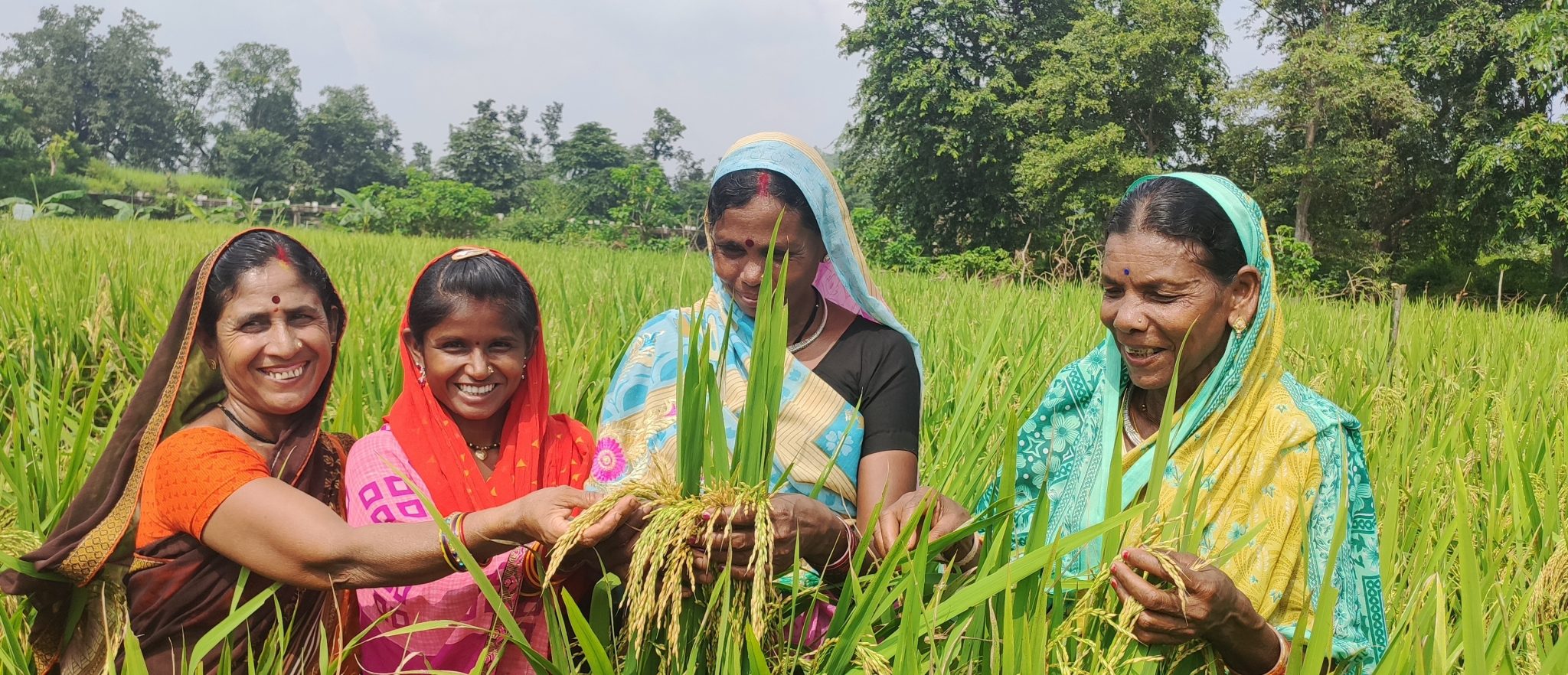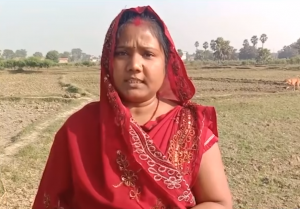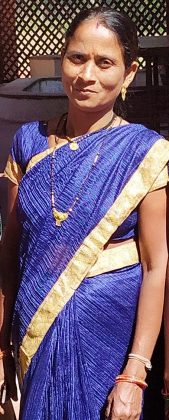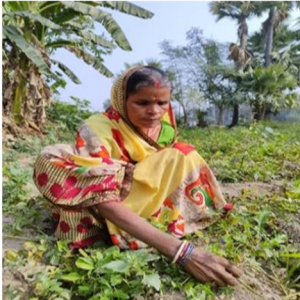Featured in csr mandate
“Women’s empowerment is the cornerstone of social progress and sustainable development, and it holds particular significance for smallholder women farmers in rural India. Despite facing numerous challenges, these women have the potential to transform agriculture and make a significant contribution to global food security while elevating their financial independence. In India, agriculture employs approximately 80 per cent of rural women. Empowering and mainstreaming the rural female workforce in agriculture can bring about a paradigm shift towards economic growth.”
At Corteva, we recognise the catalytic role that women farmers play in driving transformational economic, environmental, and social changes. We aim to empower women farmers through specific and targeted projects. These initiatives help them access high-yield hybrid crops and provide training in agronomic practices and crop protection technology suitable for the agro-climate region. We strive to be a catalyst for smallholder farmers, offering safe, affordable, and sustainable solutions that are efficient and eco-friendly, all while boosting global food security.
Rani Devi: A Rebel and a Leader
“Gharki bahu bahar jaegi, anjan logo se milegi, toh log kya kahenge?” (If the daughter-in-law of the house goes out and meets strangers, what will people say?)
These were just a few of the daunting obstacles that Rani Devi, a strong and compassionate woman from the village of Pandpa of Nardiganj Block in the Nawada District of Bihar had to overcome on her path to becoming a shining example of women’s empowerment.
Rani Devi’s life journey is one of resilience and transformation. Marrying early and facing a challenging family situation, she put her education on hold after Class X. However, two years ago, she decided to break free from her monotonous routine and sought to step outside her home, despite strong opposition from her family, who feared it would tarnish their reputation.
Rani Devi joined Corteva and Professional Assistance for Development Action (PRADAN)’s initiative as a Community Resource Person (CRP) to train farmers in Direct Sowing of Rice (DSR) and improved farming practices. The initial year was tough, with minimal family support. Nevertheless, Rani Devi’s dedication and the impressive results on her 0.6-acre land stand out. With Corteva’s support, she achieved a remarkable 14.5 quintals of rice, surpassing the 12 quintals from traditional methods. This empowered Rani Devi and increased her income by INR 5000.
Corteva has played a significant role in this achievement by contributing to enhanced yields, resource efficiency, and the promotion of sustainable farming practices, all while promoting gender equality in agriculture. Rani Devi’s husband also started to actively support her work, and together, they shared family responsibilities.
Rani Devi’s transformation led her to advocate for women’s empowerment, and she became an ambassador for DSR. She has reached 117 farmers, guiding them in cultivating DSR on 83 acres of land. Corteva’s support has been instrumental in empowering women like Rani Devi and fostering positive change in their lives.
Laxmi Bai: Empowering Her Community
“Hum Bharat ki Naari hai-Phool Nahi Chingari hai” (We are the women of India – not flowers, but sparks)
Everyone has a story to tell, but very few of them manage to move us emotionally, inspire us, or motivate us to work a little more. Laxmi Bai is one of those extraordinary women who has not only transformed her own life but also made a significant impact on those around her. Just like her fellow women in Raipur, situated in the Shahpur Block of Betul district, she became a member of a self-help group, aiming to save money.
Agriculture, being a primary source of income, was crucial for the farmers of Raipur village to minimise their input costs and maximise production. For the same, she joined a self-help group in her village to focus on saving and improving agricultural practices, crucial for the local farmers.
With the support of Santoshi Self Help Group and PRADAN, Laxmi Bai became a Krishi Sakhi despite her initial self-doubt. Her goal was to revolutionise agriculture to increase farmers’ incomes. Recognising the need for a farmer-owned institution, she became a leader in the Chirayu Women Crop Producer Company. They aimed to prioritise farmers’ well-being over profit-focused retailers.
Corteva played a crucial role by providing improved seeds, significantly boosting crop yields. Despite initial resistance from farmers, Laxmi Bai’s training and demonstrations of successful yields convinced them to adopt Corteva’s seeds.
Six years later, Laxmi Bai has brought life-changing developments to women farmers in Shahpur Block. Her determination, along with Corteva’s support, has empowered her to create meaningful change. With her fellow women in Chirayu, she plans to add value to their products, ensuring higher profits for farmers. Laxmi Bai and her team are resolute in making this dream a reality, all thanks to Corteva’s support in their inspiring journey.
Pramila Devi: A Beacon of Hope
Pramila Devi, a woman from Pes village in Bihar, was born into poverty and denied an education. She was married at a young age and found herself expected to focus solely on household chores and childcare. However, she yearned for more and wanted to contribute to her family’s well-being.
Her life took a turn when she started attending village-level meetings organised by Corteva and PRADAN. During these meetings, she learned about the Direct Sowing of Rice (DSR) technique, which she found more affordable and promising compared to traditional transplantation methods.
With unwavering determination, Pramila convinced her husband to adopt the DSR technique. In 2020, she planted paddy on about 0.2 acres of land. Initially, she faced harsh criticism and ridicule from some family members and villagers, but her hard work paid off when the paddy harvest exceeded her family’s previous yields. Pramila’s success fuelled her determination, and she continued practising DSR, expanding her cultivation to nearly one acre and 0.31 acres of land.
She also became an active advocate for DSR, inspiring and motivating other farmers in her village. The adoption of DSR has led to increased yields, reduced resource usage, and a more reliable farming cycle. It has also contributed to a sustainable ecosystem and promoted gender equality in agriculture.
After achieving recognition and respect, Pramila gained the confidence to make independent decisions. She opened a bank account to save money from crop sales and fulfill her family’s needs. Initially, she faced challenges in understanding the bank’s procedures but eventually learned and mastered them. Her newfound independence is evident, and she no longer relies on others for assistance.
Pramila’s journey is a testament to the strength of the human spirit and the power of hope. She overcame adversity to achieve success and is now an inspiration to others. She serves as a role model for women’s empowerment, firmly believing that women are equal to men, and with determination, they can achieve anything.
Over the last three years, we have positively impacted around 30,000 farmers, including 12,000 rural women farmers, and empowered over 250 agri-entrepreneurs. Our engagement with farmers spans the entire agricultural cycle, using both conventional and digital methods. An example is the Parvakta programme which allows us to engage with numerous farmers spread across rural India. The programme trains advanced farmers to become local ambassadors, guiding others in good agronomic practices.
Saraswati Bai: A Beacon of Determination
“She is a woman. She shouldn’t go out of the village.”
Saraswati Bai of Barjorpur village, Shahpur Block of Betul district, the Director of Sampurna Women Crop Producer company had to overcome mindsets like these to become a strong pillar and an epitome of women empowerment. She began her journey with Narmada Mahila Sang, a group supported by PRADHAN, focusing on improving agricultural practices and training women farmers for better yields. However, challenges remained in areas like seed selection, disease management, and marketing.
In response, Saraswati Bai and 480 other women established the Sampurna Women Crop Producer Company in 2014, with a vision of making farming solutions readily available to farmers. They aimed to break the cycle of debt imposed by profit-driven retailers in their community.
Our CSR project played a pivotal role in supporting the Farmer Producer Company. It helped expand their business, create post-harvest storage facilities, and develop the team’s skills and the board of directors. This support significantly improved the company’s operations.
Saraswati Bai’s initiative has brought positive change to the region. Sampurna now educates over 1500 women farmers in adopting advanced crop production technology, particularly in maize cultivation. She and her team are planning to venture into product processing, including dal milling and oil production this fiscal year to enhance competitiveness and increase farmers’ income. Her determination and the support she received from us transformed the lives of women farmers and empowered them to face any obstacle head-on.
By offering training, technology, and resources, we have enabled these women to become leaders in their communities, advocating for better agricultural practices and increased income. Their journeys are a testament to the potential of rural women farmers in India to drive positive change in their communities. Through continued support and empowerment, we are contributing to a more inclusive and prosperous agricultural sector, ultimately leading to a brighter future for rural India.
Commitment to Women’s Empowerment
Our primary mission is to enrich the lives of smallholder and women farmers, promoting farming resilience and offering solutions that boost yield and profitability. We acknowledge the pivotal role women play in agriculture. We have launched numerous programmes and initiatives to empower them.
Over the last three years, we have positively impacted around 30,000 farmers, including 12,000 rural women farmers, and empowered over 250 agri-entrepreneurs. Our engagement with farmers spans the entire agricultural cycle, using both conventional and digital methods. An example is the Parvakta programme which allows us to engage with numerous farmers spread across rural India. The programme trains advanced farmers to become local ambassadors, guiding others in good agronomic practices.
In partnership with PRADAN, we have supported 17,000+ smallholder Indian farmers by replacing short-duration wheat with high-yield maize hybrids. This enables farmers to increase their yield leading to high productivity and profitability.
Our Farmer Producer Organisations (FPO) programme, spread throughout India, primarily in the regions of Madhya Pradesh, Bihar and Jharkhand, promotes agri-entrepreneurship among rural women. Women are educated with financial literacy, leadership training, and technical guidance, empowering women farmers and entrepreneurs.
Our AcreNext programme focuses on direct-seeded rice farming, contributing to sustainable agriculture. Empowering women farmers is essential for sustainable development in the agricultural sector.
Recently, we partnered with the Samunnati Foundation to create ten Female Farmer Producer Organisations (FPOs) in Madhya Pradesh and Jharkhand. The goal is to enroll 2500 women members, providing training and support to make them self-sustainable.
The stories of Rani Devi, Pramila Devi, Laxmi Bai, and Saraswati Bai exemplify the transformative power of women’s empowerment in agriculture. Our commitment goes beyond farming; it is about improving lives and communities. By offering training, technology, and resources, we have enabled these women to become leaders in their communities, advocating for better agricultural practices and increased income. Their journeys are a testament to the potential of rural women farmers in India to drive positive change in their communities. Through continued support and empowerment, we are contributing to a more inclusive and prosperous agricultural sector, ultimately leading to a brighter future for rural India.









Leave A Comment